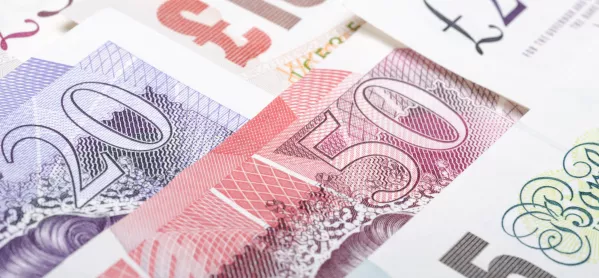New research shows that spending on teachers has failed to keep pace with overall school expenditure, with average pay falling by nearly £3,000 over seven years.
Research by the Education Policy Institute (EPI), published today, shows that between 2003 and 2017, spending on teachers increased at a “much slower rate” than spending overall - by 17 per cent, compared with an increase in overall per-pupil spending of 42 per cent.
Between 2010 and 2017, average teacher salaries in primary schools fell by £2,900 (7 per cent), while in secondaries they dropped by £2,700 (6 per cent), in 2016-17 prices.
Spending on teachers failed to increase for nearly a decade, with the level of per-pupil spending on teachers in 2016-17 staying broadly the same as in 2007-08.
In secondary schools, there is a “huge difference” between the highest and lowest spenders on teachers, the report notes.
Read: Teachers ‘set for 2.75 per cent pay rise’ in 2019-20
Pay: Unions demand 5 per cent pay rise for teachers and heads
In 2016-17, those spending the most on teachers spent 15 per cent more, or £460 more per pupil, than those spending the least.
In an average-sized secondary school, this would equate to an additional £440,000 - equivalent to nearly 10 extra teachers.
The report also highlights the extra strain that plans to boost teachers’ pay will put on school budgets.
Ministers have pledged to raise starting salaries for teachers in England to £30,000 by 2022-23.
But the report argues that the proposals will add pressure to the largest area of school spending - teacher costs. These account for around half of all spending in schools, it says.
Jon Andrews, EPI deputy head of research and director for school system and performance, said: “The government has pledged to raise teacher starting salaries to a minimum of £30,000 by 2022-23 - a significant increase of 23 per cent on minimum salaries, which are currently around £24,400 in areas of England outside of London.”
“These salary rises will have been welcomed by the teaching profession and may help with issues around teacher recruitment and retention. However, given that spending on teaching staff makes up half of school spending, they will place additional demands on school budgets and so the government needs to ensure they are properly funded.”
A Department for Education spokesperson said: “This government has announced plans to increase starting salaries for teachers to £30,000 by 2022-23 in order to attract the best talent into the teaching profession.
“We have also announced the biggest funding boost for schools in a decade - an additional £14 billion over the next three years. This will give every school more money for every child, with the biggest increases going to the schools that need it most.”




